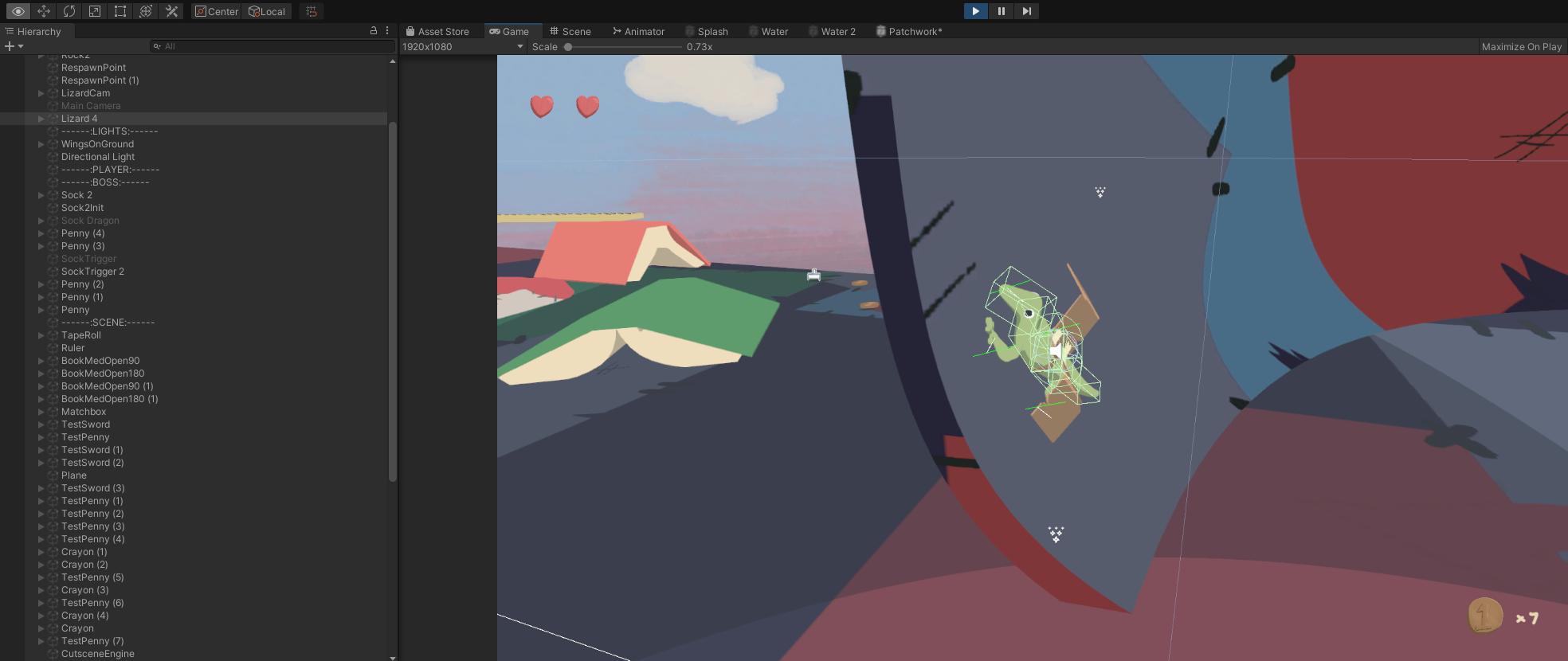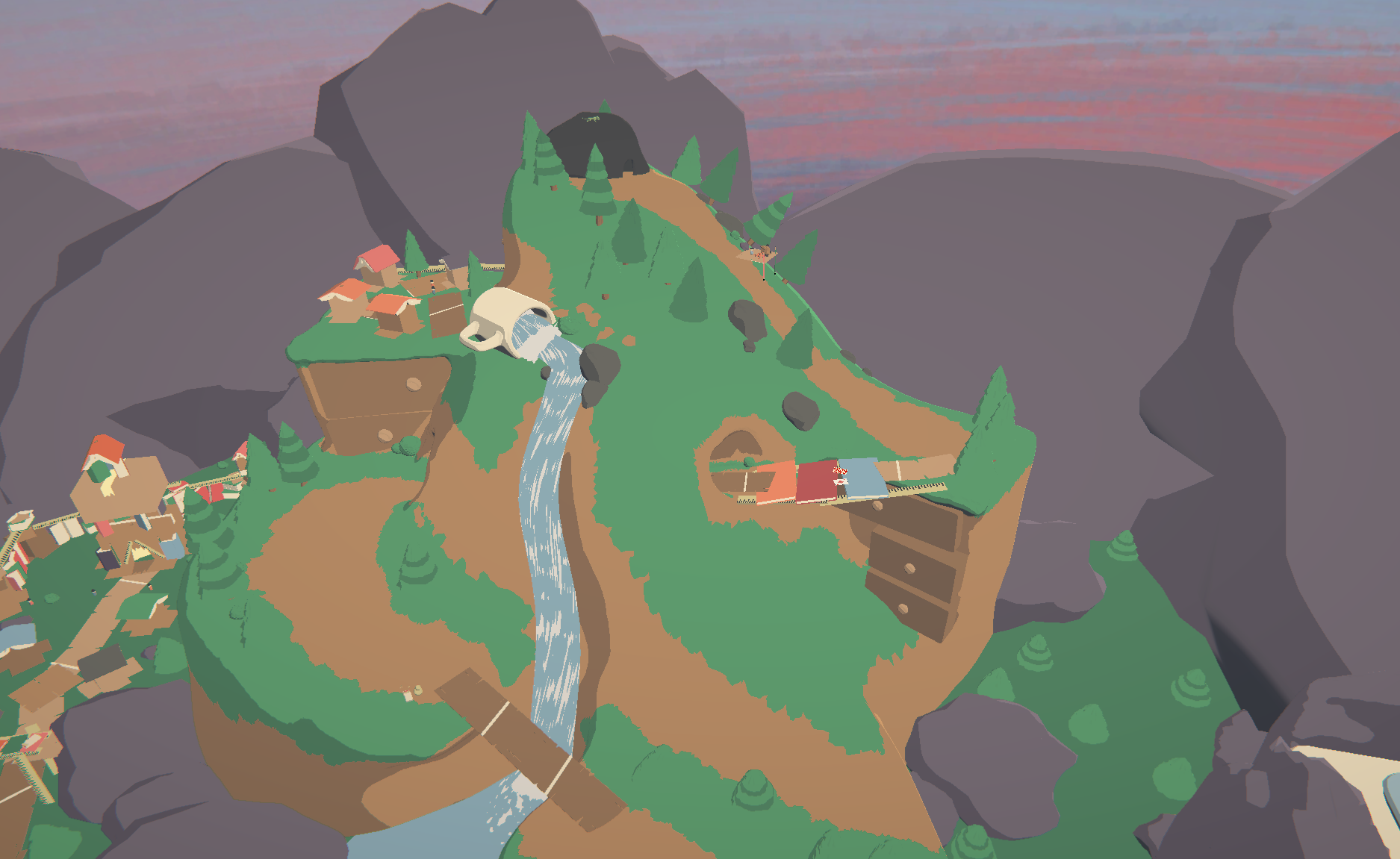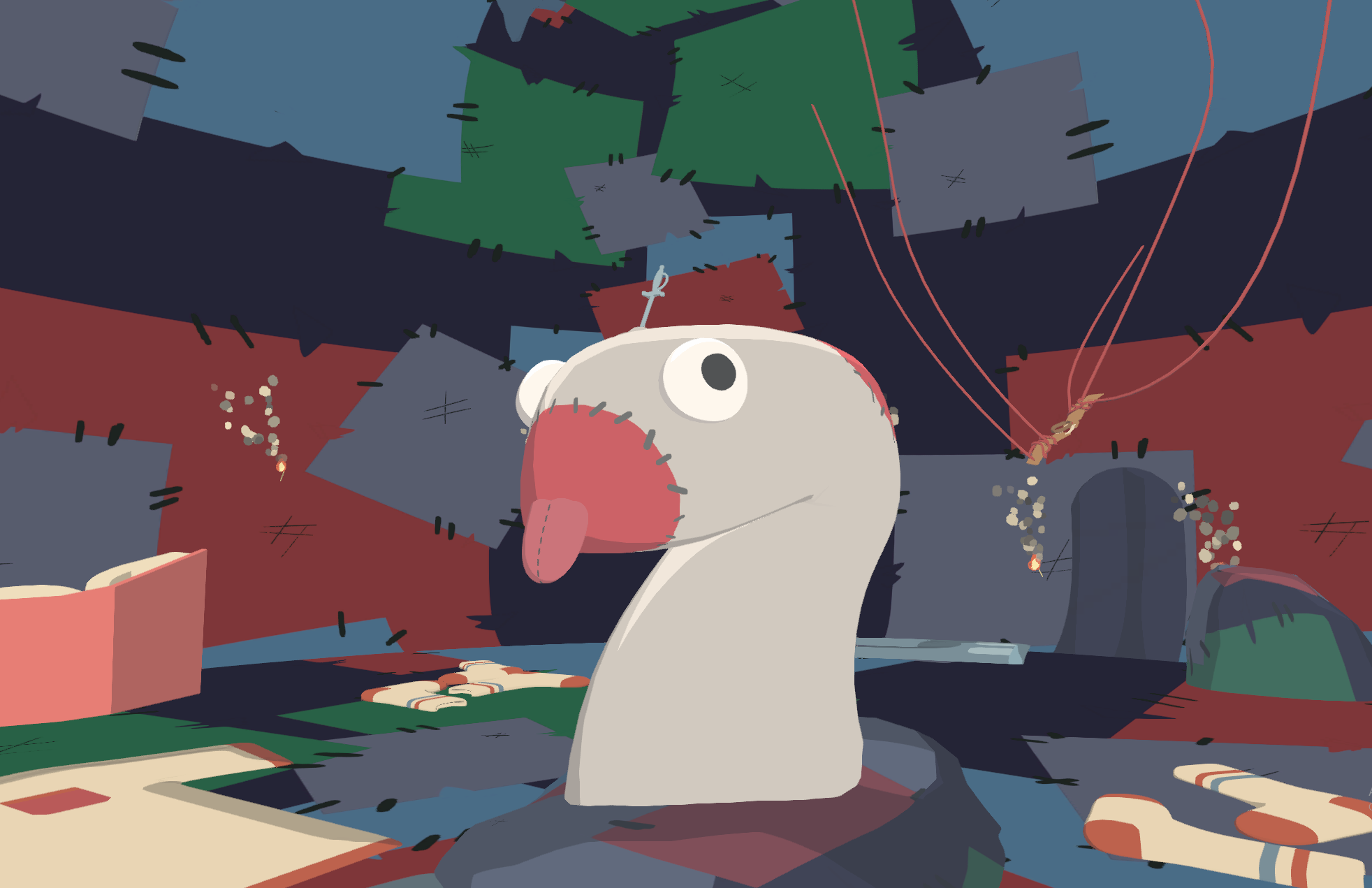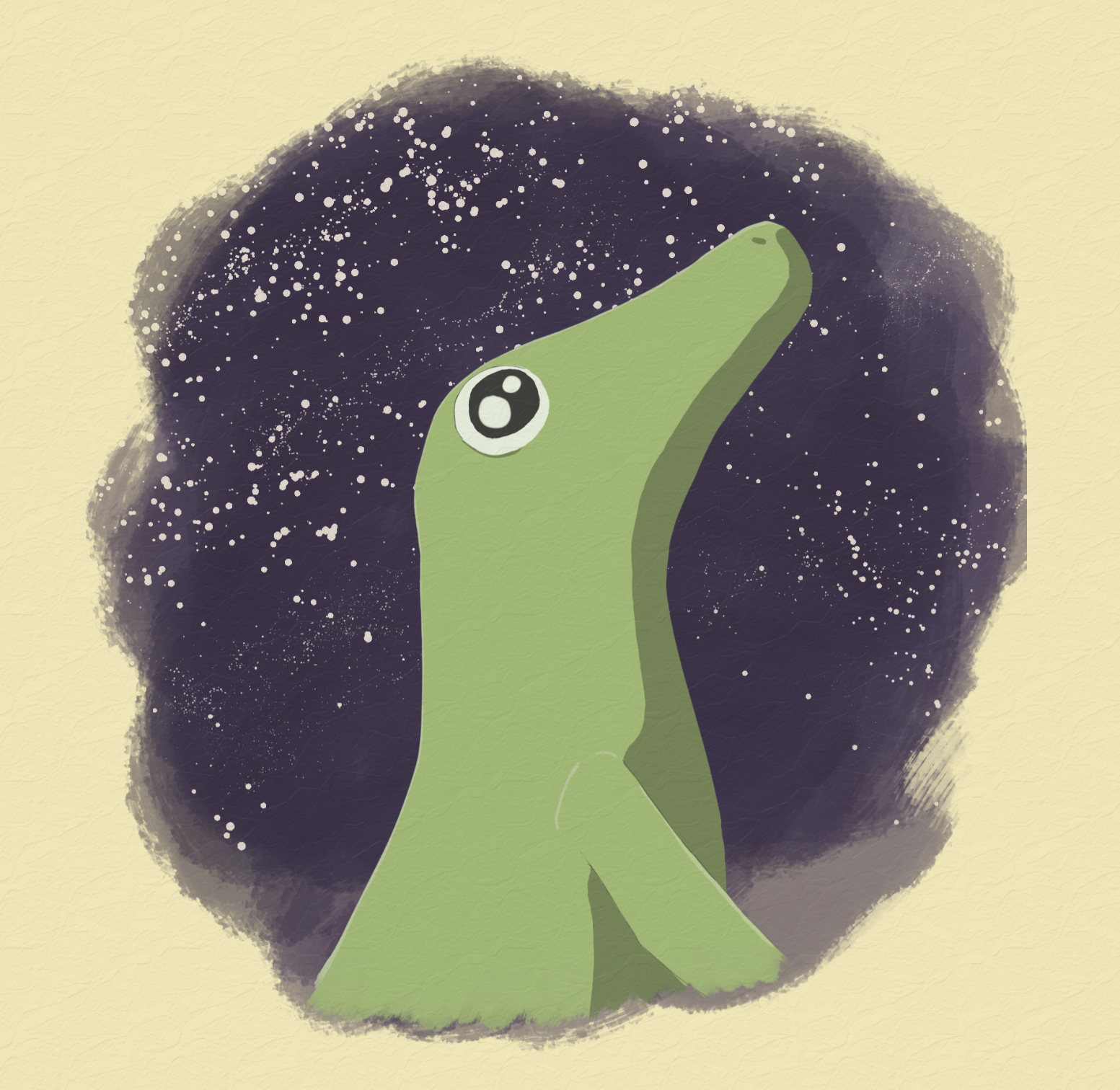It's been a long way…
Humble Beginnings:
This project initially started out as a submission to the WeeklyGameJam, Week 161 back in August, 2020. Over that week of development, we concocted our little game about a lizard who always dreamt of being a dragon. Due to the constraints of having to develop a multitude of systems in such a short time, the scope of our game was kept fairly small. We submitted our game to the jam, where it was met with warm welcome. The encouragement was infectious. We knew right there that we had to keep developing Sword & Slither. We chose Indie Lift 2020 as an outlet to breathe more life into the game. Our ambitions with the scope of the project grew and we set to work on refining what we had done through the week-long jam.
The work continues:
One major feature lacking in the jam version was the ability for Orville to climb and walk on walls, as most lizards tend to do. Pairing this mechanic with our system of procedural animation proved to be a challenging endeavor, one that we are still in the process of polishing now. As the entirety of our two-man team began a new semester shortly after the release of our jam demo, our time to put into development was limited, and progress, while still meaningful, was less than we had hoped to accomplish in that time. However, upon completing our respective semesters, our free time to develop Sword & Slither became abundant once more. With the deadline for Indie Lift upon us, we set out to do as much as we could.

Through the lizard's eyes:
Our most driving goal for the current version was to expand the scope of the game as a whole. From a narrative perspective, we still wanted to tell the wholesome story of a lizard following his dream. However, the medium in which we wanted to express this story began to mature and develop. Originally, Orville lives out his dream of soaring through the skies and raining fire from above in a very grounded perspective. The main level existed in a bedroom that Orville could explore, with very tangible things: Desk, Chair, Bed, Dresser, etc. In our updated version, we have expanded on this idea to present the world from Orville's point of view. So, while Orville's terrarium is still housed atop a dresser next to the bed, in our new version, the dresser is now a large mountain and the bed is reimagined as a mountain range with a cavern of clothes hidden underneath. We are ecstatic to explore this newly realized perspective in a number of different areas, all loosely based on the source material, but fantasized through Orville's imagination.

A new challenge to face:
One area of expansion that we wanted to capitalize on was the prospect of introducing boss fights to the game. We felt like the mechanics we had developed could suit a Zelda-esque boss encounter quite well. We played around with some designs and finally settled on "The Sock Dragon." Implementing this boss was contingent on creating a number of new systems that we hadn't even considered doing before. For starters, if one is to fight a boss, typically, that fight has some sort of stakes. Usually, the stake is the player dying. And thus, a health system for Orville was born. Additionally, we needed to develop a robust scene changing system to better handle the intricacies of the boss fight. And while we were at it, we decided to code an elaborate finite-state machine to drive not only the boss encounter but also much of the game. Creating a boss was something that neither of us had done before, and was a very welcome experience.

And what did we learn today?
In truth, we have both learned so much in the few months since this game's origin that we now realize the mistakes we've made along the way have accumulated to a large degree. There is still a tremendous amount of polish that the game desperately needs, and that we have somewhat neglected in lieu of more scale and content. This is a lesson we have humbly learned. After seeing many of the other much better-polished games submitted to Indie Lift, it was clear how much we were lacking. As such, our immediate priorities for Sword & Slither are to step back and polish what we have accomplished. Our two biggest dilemmas with the playability of the game are the controls and the camera, neither of which are particularly enjoyable in their current states. Music and overall sound design is an area that we were unable to put as much time into as we would have liked and is high on our list of improvements. We are continually excited by new and better methods of doing things that we discover as we learn more about game development. Creating Sword & Slither has been a fantastic opportunity for both of us and we thank everyone who has taken the time to try it out.

With the continued development of Sword & Slither, we will post more frequent (and less long-winded) devlogs of our progress.
With much love,
Kitchen Synk Studios
Dan and Jared

Get Sword & Slither
Sword & Slither
Help Orville, the world's cutest wannabe bad-guy, fulfill his dream of becoming a dragon!
| Status | In development |
| Author | Kitchen Synk Studios |
| Genre | Adventure |
| Tags | bedroom, burn, Dragons, fire, Flight, indielift2020, lizard, openworld, slither, sword |

Leave a comment
Log in with itch.io to leave a comment.